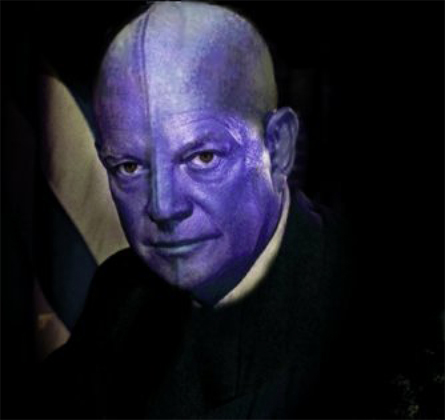DS9's writers tried to keep it vague, specifically so it would be hard to trip themselves up. Specifically though...
- After the War:
- SLOAN: To evaluate an ally. And a temporary ally at that. I say that because when the war is over, the following will happen in short order. The Dominion will be forced back to the Gamma Quadrant, the Cardassian Empire will be occupied, the Klingon Empire will spend the next ten years recovering from the war and won't pose a serious threat to anyone. That leaves two powers to vie for control of the quadrant, the Federation and the Romulans.
- The Cardassian Empire would be occupied and we know they suffered heavy casualties.
- (What you Leave Behind)
- BASHIR: Eight hundred million dead.
GARAK: And casualty reports still coming in. Well, aren't you going to congratulate me, Doctor? My exile is now officially over. I've returned home. Or rather, to what's left of it.
BASHIR: Listen, I know that this must seem bleak
- That's 800 million dead from just the final battle, not including the heavy losses the Cardassian Military had taken during the war.
- Near-total destruction of the Cardassian fleet and military assets.
- The Klingon Empire
- Klingon Civil War -- Was never suggested to be a huge blow to their military power in DS9 and was likely more skirmishes with few losses than actual major engagements.
- Klingon-Cardassian War -- The Klingons had devoted a full third of their military power to the conquest of the Cardassian Empire.
- Klingon-Dominion War -- After the Cardassian Empire joined the Dominion, the Dominion effortlessly drove out the Klingons. I can only guess they suffered heavily during that portion of the war, because they were basically forced to abandon all their captured territory. Given the nature of the Klingons, I would expect the losses to be high. At least 50% ship loss, probably closer to 75%. Especially because Gowron was not the brightest strategist to ever grace the Empire. He would have demanded they take those losses for the sake of politics until it reached the breaking point.
- The Dominion War --The Klingons suffered heavily not just thanks to the Breen energy weapons that came late into the game, but also thanks to the foolish actions of Gowron during that time in attempt to keep his position as Chancellor from the one man in the Empire who didn't want the damn seat in the first place.
- Conclusion -- Going off what happened in the show and what Sloan had said, and given that Sloan was probably referring to the Alpha Quadrant, not the Beta Quadrant--I expect that the Klingon Empire had suffered such heavy losses that they could probably only just maintain what they had. They had no meaningful projection capabilities by the end of the war.
- United Federation of Planets
- Had taken heavy losses during the war. Especially the early parts of the war.
- Had lost shipyards on the border, as well as repair stations, and starbases.
- Survived with most of its military power intact.
- Presumably occupied or assisted in occupying Cardassia.
- Bajor on fast-track to membership.
- Conclusion -- The UFP took heavy losses, but most of the blow seems to me to have been philosophical. Strategically, the UFP is in the lead position. Bajor would go on to become a UFP member. That gives the UFP control of the entire Bajor Sector. Control of the Wormhole. The UFP would also undoubtedly reclaim the colonies it gave up to the Cardassians in the DMZ. And keep the ones that Cardassians had given up for good measure. It would occupy the Cardassian space in cooperation with the other powers. That essentially gives the UFP greater territorial depth against any future Dominion attack.
- Romulan Star Empire
- Entered the war later.
- Suffered some sort of political revolution between DS9 and Nemesis.
- A coup in Nemesis that was quickly ended.
- Conclusion -- The Romulans seem not to have taken much in the way of losses in the Dominion War. Sloan's statement suggests to me that the Romulans were the only real competitors for the Alpha Quadrant. That's odd, given most of the official maps don't show the Romulans having a possible dog in the fight, but I suspect that the Romulans must have some sort of enclave over in the Alpha Quadrant or perhaps took the Chinese route using money to buy affluence in the area. You might have small bits of property gifted to the Romulans, such as a planet to mine, a moon to house a repair station, or that sort of thing. It would also explain the occasional attacks from Romulan territory that happened in the series, but would have taken months to execute if we go by the maps an official FTL speeds.
Not entirely.
Militarily -- Devastated. The first war with the Dominion had gone very badly for the Klingons; that they were actually driven entirely out of Cardassian space suggests to me that the losses were high. These were Klingons and Gowron was in charge. The idea that they suffered anything less than staggering losses to force a route is almost obscene.
Politically -- Exact opposite, I expect. The Dominion War would actually galvanize the Klingons. That said, the fact that Martok is now the leader of the Empire would cause problems among the elite, who would resent him for obtaining such a high status. Indeed, he was prevented from even entering the military at first because he tried to become an officer and an old noble banned him for the audacity. It was a shitty thing, even by noble standards at the time, but the fact that it could be done is telling. I also expect the loss of military resources during the war meant that a fair amount of conquered worlds might be itching for some revolutions. Not to mention weakened or disgraced houses might be eyeing each other. The Klingons fight among themselves as often as they do others.
Economically -- I doubt it. Ship production would have helped to drive the economy forward. Even after the war, they'd need more ships, newer ships, and better ships to replace the ones that had been lost. Even the idea that they might have burned through their resources is absurd; the Klingon Empire has enough resources in its own system to build a dyson sphere. They don't need to worry about raw materials, save the occasional BS Star Trek ones.
The blow was hard, but ten years for a power to recover is really not all that bad. I expect that Sloan was mostly speaking about their ability to project power into the Alpha Quadrant in any case.
Was actually never canon in Trek Prime, as it turns out. That was just Paramount and CBS misleading us.

 memory-beta.fandom.com
memory-beta.fandom.com


